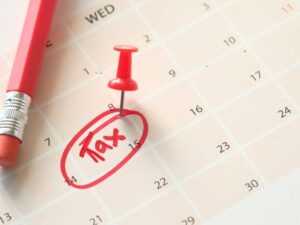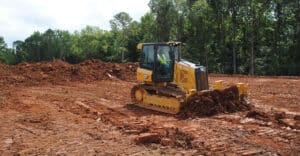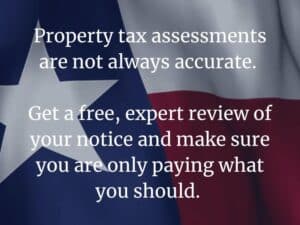Filing a property tax protest can be one of the most important steps a Texas homeowner takes to protect their investment. Success often depends on presenting strong, credible evidence. Among the most persuasive tools available are comparable sales, often called “comps.” Knowing how to find, adjust, and present the right comparable sales can make all the difference between securing a fair valuation and paying too much.
What Are Comparable Sales
In a Texas property tax protest, comparable sales refer to homes that are similar in important ways to the home being protested and that sold under normal market conditions. Appraisal districts rely heavily on comparable sales to estimate values across entire neighborhoods through mass appraisal models. Homeowners can use the same concept to show when a value assigned to their property is incorrect.
However, it is not enough to find a few recent sales. The wrong comps can weaken a case, while the right ones, properly adjusted, can significantly strengthen it. Understanding what qualifies as a true comparable is critical to building a strong argument.
What Makes a Sale Comparable
Not every recent sale can be used as reliable evidence. Good comparable sales meet several important criteria.
Location is one of the most important factors. Ideally, comps should be located in the same subdivision or a nearby neighborhood with similar quality, amenities, and desirability. Two homes that are only a few blocks apart may not be true comps if the neighborhoods differ substantially.
Size must also be considered. A comparable should generally be within ten to fifteen percent of your home’s living area and lot size. Homes that are much larger or smaller will need to be adjusted carefully to account for these differences.
Features such as the year built, layout, number of bedrooms and bathrooms, garage size, presence of a pool, and general condition must also align closely. Adjustments may need to be made when differences exist. For example, if a comparable has a new kitchen and your home does not, an adjustment downward is necessary to reflect that difference in value.
Timing matters as well. The strongest sales occurred near January 1 of the tax year being protested. Sales from the fall or winter before the protest year are usually most persuasive. Older or newer sales may be rejected if market conditions have changed.
Finally, the sale must be an arms-length transaction. This means it must have occurred between unrelated parties under typical market conditions. Foreclosures, short sales, and family transfers usually do not qualify as credible evidence because they do not reflect normal market value.
Why Adjustments Are Important
Few homes are exactly alike. Even the best comps often have small differences in size, age, or amenities. To create a fair and accurate comparison, adjustments must be made.
For example, if your home is one hundred square feet smaller than a comparable, the sale price of that comparable should be adjusted downward to account for the size difference. Similarly, if your home lacks a feature that the comparable has, such as a pool or an updated kitchen, the comps’ sale price must be adjusted to reflect that added value.
Without proper adjustments, the data can mislead rather than inform. A poorly adjusted comparable can cause a protest to fail, even when the case is otherwise strong.
The goal is to bring the comparable sales into alignment with the subject property so that an apples-to-apples comparison is achieved. Appraisal districts expect to see adjustments where appropriate, and protests without them are often dismissed.
How Comparable Sales Help Your Protest
Comparable sales are useful in two major ways when challenging a property tax valuation.
Challenging Market Value
One strategy is to argue that the appraisal district’s estimated market value is too high compared to recent adjusted sales of similar homes. For example, if the district values your home at $425,000 but adjusted comps point closer to $385,000, that is strong evidence supporting a reduction.
Showing Unequal Appraisal
Another strategy is based on fairness. Even if your market value seems roughly accurate, if your home is assessed at a significantly higher amount than similar properties, you may have grounds to protest based on unequal appraisal. Texas law specifically protects homeowners against unequal treatment, recognizing that property taxes must be fairly and uniformly assessed.
The Problem with Bad Comps
Bad comps can be worse than no comps at all. Using the wrong sales damages credibility and weakens the protest.
Common mistakes include relying on sales that are too old, picking homes from dissimilar neighborhoods, failing to adjust for material differences, or using homes that were heavily remodeled when your home is not.
Online listings or screenshots from real estate websites may seem helpful, but without careful vetting and proper adjustments, they usually fall short of the standards appraisal districts expect.
The strongest cases present clean, recent, local, and appropriately adjusted comparable sales.
Where to Find Comparable Sales
Homeowners often start by searching public resources. County appraisal district websites frequently provide sales data. Online real estate portals and public records searches can also be helpful starting points.
However, simply gathering sales is not enough. Identifying the best comps and making the necessary adjustments requires skill and experience. Presenting the evidence clearly and persuasively to the appraisal district is essential for success.
This is why many homeowners choose to work with experienced property tax consultants who specialize in building strong, well-supported protests.
Final Thoughts
You do not need to hire an independent appraiser or spend thousands to fight an inflated property value. However, you do need strong, credible comparable sales that have been appropriately adjusted to reflect differences in size, features, and condition.
Taking the time to review recent neighborhood activity, select the right comps, and make necessary adjustments can lead to significant savings and protect your home’s value for years to come.
Property tax fairness is not automatic. It must be defended with the right evidence and the right approach.






